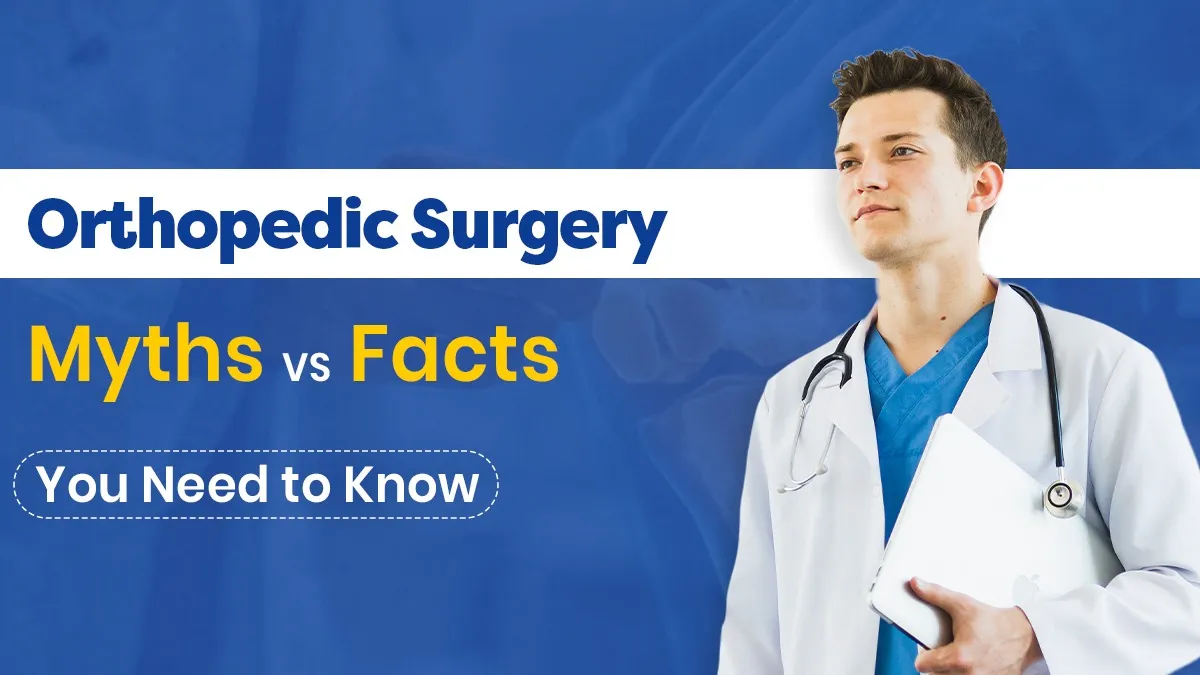Estimated reading time: 3 minutes
Before starting an orthopedic surgery residency, there are a lot of misconceptions. Some say, “You have to be strong enough to survive ortho.” Others warn, “Say goodbye to your social life.” Almost everyone says, “Ortho is only about breaking bones with big tools.” Such statements are common in medical college and among students preparing for PG.
However, the truth is that most of these random ideas are just myths. Even if someone plans to join the best orthopedic residency programs or apply to the top ortho residency programs, it is important to be informed about what is real and what’s not.
Myth #1: Orthopedic surgery deals only with bones and joints
Reality:
- While bones and joints are a central part of orthopedic care, the specialty goes far beyond that.. Orthopedic surgeons manage ligaments, fascia, tendons, peripheral nerves, and pediatric deformities and tumors.
- Knowledge of clinical biomechanics and systemic disorders such as infectious diseases and metabolic bone diseases is core to orthopedic surgical training.
Myth #2: Orthopedic surgery requires quite a lot of physical strength
Reality:
- This one is the oldest and most misleading myth about the orthopedics residency. Even though orthopedic procedures can be demanding in terms of strength, modern tools and technology have taken away a large percentage of the brute strength requirements. Instead, mental strength, planning, and technique are far more important.
- What’s truly helpful during orthopedic residency is mental firmness and a willingness and eagerness to keep learning.
Myth #3: Orthopedic surgery is not academical
Reality:
- This discipline is incredibly academic. One studies everything from radiological patterns and histopathology to stay up to date with the latest in implant designs and biomechanics.
- The best orthopedic residency programs emphasize academic knowledge, research, and evidence-based practice just as much as surgical skill.
Myth #4: All orthopedics surgeons end up doing trauma only
Reality:
- Orthopedics is one huge specialty, with sub-specialties within it for everything. Trauma is a significant part of life but certainly is not the only one.
- The best orthopedic surgery residency will expose residents to all subspecialties so that the choice they make during their career is an informed one.
Myth #5: Connections are the key to getting into an ortho residency
Reality:
- Connection and mentorship do matter, but selection for those ortho residency programs is, on the tip of the iceberg, based on merit, performance, and motivation.
Some of the most valuable traits include academic performance, research experience, observerships, and sincere interest in medicine. - The best orthopedic residency will look for hard work and potential, not just contacts.
Myth #6: You will have no life if you get into orthopedics
Reality:
- Like any surgical discipline, the first few years of orthopedic residency will be grueling. However, with experience and balance, good ortho surgeons live a rewarding and balanced life.
- In reality, finding the right environment is the key to success in orthopedic residency.
Conclusion:
Orthopedic surgery is not an easy but fulfilling branch, and it’s essential to look beyond the common myths. Whether you’re just starting or are looking to secure the best orthopedic residency program, don’t let these myths misguide you. Stay updated, learn, and select what is right for you. The path of orthopedic surgery residency is challenging, but with a proper mindset, it can also be one of the most rewarding experiences of your medical career.

